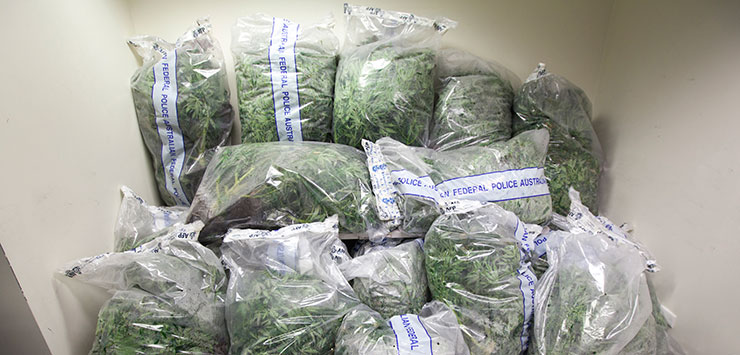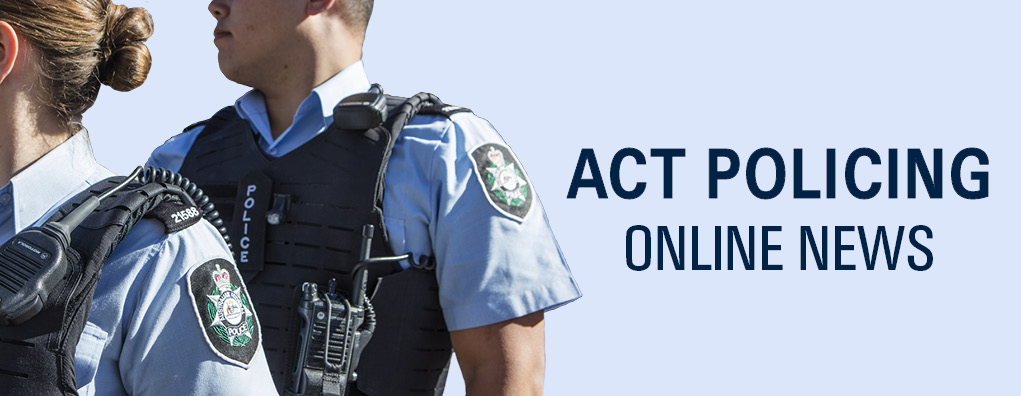Drugs and the law

ACT Drug Law Reforms
Changes to the ACT’s Drugs of Dependence legislation come into effect on 28 October 2023.
It’s important to know that the ACT is not legalising illicit drugs. Drug use is not safe or encouraged, and police will still confiscate illicit drugs if found on a person. It is still illegal for a person to drive with any level of illegal substances in their system.
Police will continue to target drug trafficking and criminality driven by drug use.
Detailed information regarding the changes including the quantities and types of illicit drugs, purpose of the reform, information for business and licensed venues and support service can be found on the ACT Health website.
What is changing?
- Maximum penalties for possessing small amounts of some illegal drugs for personal use have been reduced.
- Small quantities of drugs found on a person may attract either diversion to a health education and information session, or the option of paying a $100 fine.
- If the person does either of these things, no further action will be taken.
- If you are in possession of drugs and charged with other offences, it is likely that you will be charged with drug possession offences at the same time – you will not be referred to a health session or issued a fine.
- If the matter goes to court, a $160 fine can be issued, with a potential criminal conviction.
- In most instances, police will seek to divert or fine an individual however police will retain the power to summons or arrest an individual to appear before a court, particularly when other offences are involved.
What is not changing?
• The listed drugs are still illegal and drugs will still be confiscated.
• It will still be illegal for a person to drive with any level of illegal substances in their system.
• These changes do not affect the 2020 cannabis reforms. Rules about cannabis, including personal possession limits and the number of plants that a person can grow, will still apply and be enforced.
• Possession of any amounts of these drugs above the new ‘small quantity’ thresholds but below drug trafficking limits, will still attract higher fines (up to $8,000) and potential prison sentences of up to 6 months (reduced from 2 years).
• It will still be illegal to supply and manufacture drugs. Penalties for these offences will not change.
What happens when someone is found with a small amount of drugs?
Police will confiscate the drugs and take them away to test and weigh them. This will inform police if someone is eligible to receive a Simple Drug Offence Notice.
In most instances, police will then refer them to the Canberra Health Services (CHS) diversion service.
The CHS diversion service will contact the person and set up a time for the health session.
o Once the person has attended a session, police will be advised and will take no further action.
o The person does not get a Simple Drug Offence Notice or a criminal record at this time, but their details will be in the police internal system.
If the person does not satisfy the drug diversion or requests a fine, CHS will advise police. If eligible, police may issue a Simple Drug Offence Notice.
To satisfy the Simple Drug Offence Notice, the following must be completed within 60 days:
o The person can then pay the fine via the Access Canberra website, over the phone or in person; or
o If the person decides they don’t want to pay the SDON, they can contact Canberra Health Services to complete a health session. Once the person has attended the session there will then be no further action.
Penalties in the ACT
For information on drug related offences and their penalties refer to the Drugs of Dependence Act 1989, the ACT Criminal Code 2002 and the Commonwealth Criminal Code 1995.
Cannabis rules
From 31 January 2020, there are new rules around personal use of cannabis in the ACT. Cannabis is not legal in the ACT, amendments have been made which exempt individuals from criminal liability in certain circumstances.
Under the ACT law if you’re aged over 18 and in the ACT, you can:
• possess up to 50 grams of dried cannabis or up to 150 grams of fresh cannabis
• grow up to two cannabis plants at your home per person, with a maximum of four plants per household.
It’s an offence under the ACT law to:
• smoke or use cannabis in a public place
• expose a child or young person to cannabis smoke
• store cannabis where children can reach it
• grow cannabis using hydroponics or artificial cultivation
• grow cannabis plants where they can be accessed by the public.
• to sell, share or give cannabis as a gift to another person
• for people aged under 18 to grow, have, or use cannabis
• to drive with any amount of cannabis in your system.
For more information on the ACT Government’s changes to its cannabis rules, including frequently asked questions visit the ACT Government website.
For those under 18 it remains an offence to be in possession of small amounts of cannabis or one or two plants. A police officer will confiscate the cannabis and will likely first divert the young person to Canberra Health Services. If a health session is not satisfactorily attended, or a fine is requested, police may issue a Simple Drug Offence Notice. A parent or guardian will be notified of the incident and if issued, will receive a copy of the notice.
Legislation
The ACT uses several legislative instruments for drug offences including the Drugs of Dependence Act 1989 (DODA), the Criminal Code 2002 (ACT) and the Medicines, Poisons and Therapeutic Goods Act 2008 (ACT).
Under these legislative instruments there are offence provisions for a range of drugs including modern synthetic types. The ACT is always updating legislation to keep pace with changes in drug markets.
Commonwealth law is also applicable across Australia, including in the ACT, and all police officers are empowered to enforce these laws. Key Commonwealth legislation includes the Commonwealth Criminal Code 1995 and the Narcotic Drugs Act 1967 (Cth). ACT Policing officers have the discretion to utilise ACT or Commonwealth laws and will enforce the relevant law depending on the situation. To note, it is an ACT Policing policy position to support the ACT Government’s harm reduction approach to drug dependency.
Precursors/manufacturing
Essentially, ‘precursors’ are the raw chemical components of a controlled drug. Many precursors are present in products that are readily available off-the-shelf in pharmacies, supermarkets and hardware stores and are commonly extracted in backyard laboratories to manufacture controlled drugs, particularly amphetamine type stimulants.
The use of ’precursors’ and controlled drug manufacture has increased over recent years, and accordingly DODA includes a range of offences to deal with those who:
• manufacture, sell or possess ‘controlled precursors’ to manufacture controlled drugs
• manufacture controlled drugs
• possess equipment for manufacture including pill presses.
Penalties relating to these types of offences range from $100 000 fines and/ or 10 years imprisonment up to life.
Child protection
A number of offences included in the legislation are for the protection of children. These include offences for procuring a child to traffic drugs, supplying drugs to a child for the child to sell, and smoking cannabis in the presence of children.
Driving
It is an offence to drive while under the influence of illicit drugs. Unlike alcohol, there is a zero tolerance for drugs in your system when driving. For more information, visit the drug driving webpage and the Justice and Community Safety website.
Information for businesses
Common household items sold in retail stores can be used in the manufacturing of illicit drugs. When purchased alone the items below do not represent illicit drug activity. However, frequent and large quantity purchases of one or more of the items below or similar items may be an indication of illicit drug manufacturing.
If you suspect a suspicious purchase has occurred in your store, try to:
• keep a copy of the receipt as proof of the transaction
• keep a copy of the credit card details, if used
• make note of the time of purchase and physical description of the person
• keep hold of CCTV footage of people behaving suspiciously
• record a vehicle registration if safe to do so.
• Report suspicious illicit drug activity to Crime Stoppers on 1800 333 000 or via the online reporting form.
Resources
Visit the Australian Criminal Intelligence Commission website for statistical overview of illicit drug arrests and seizures as well as profiling the current situation, national impact and the emerging trends and threats of illicit drugs in Australia.






